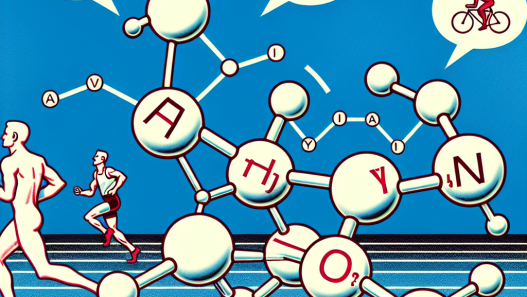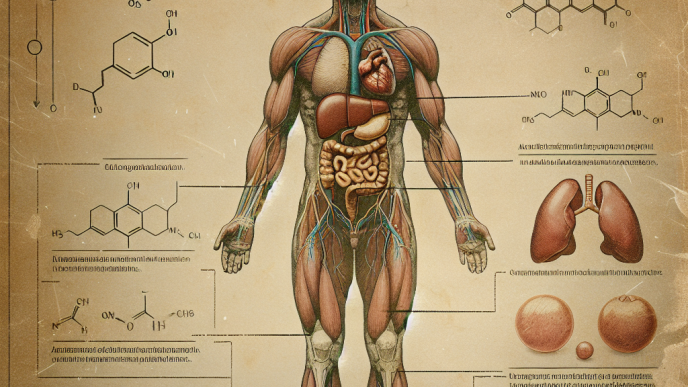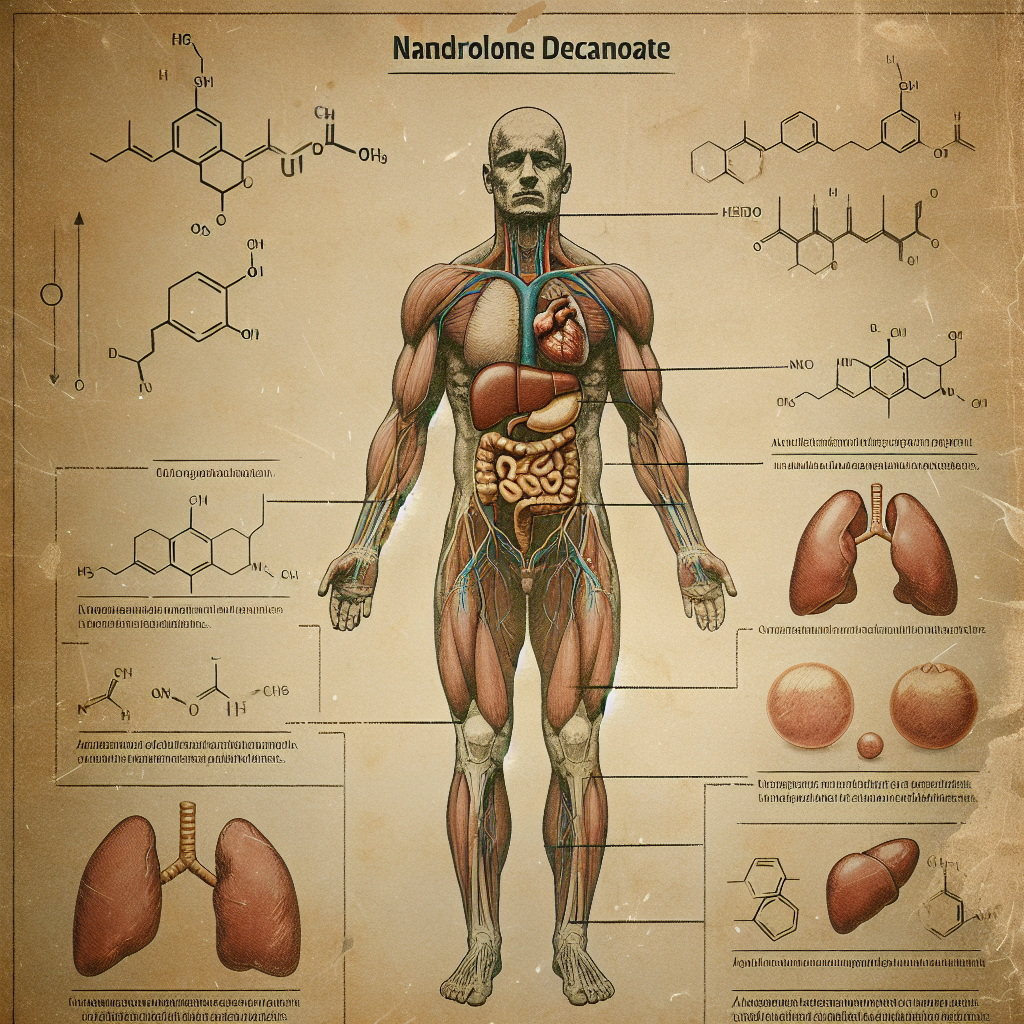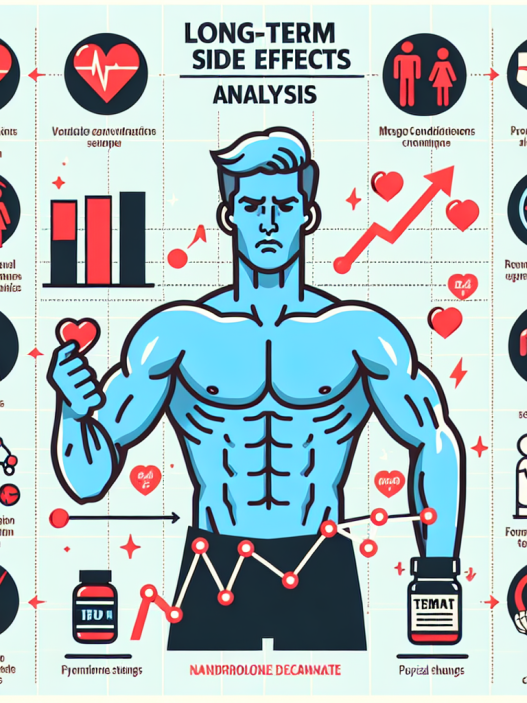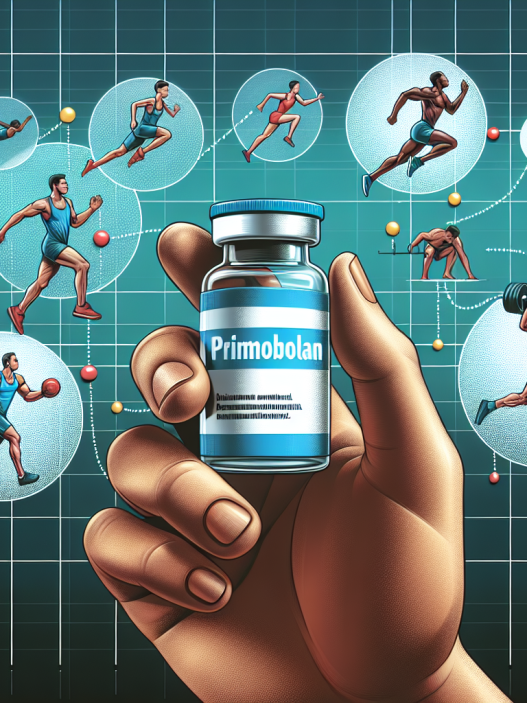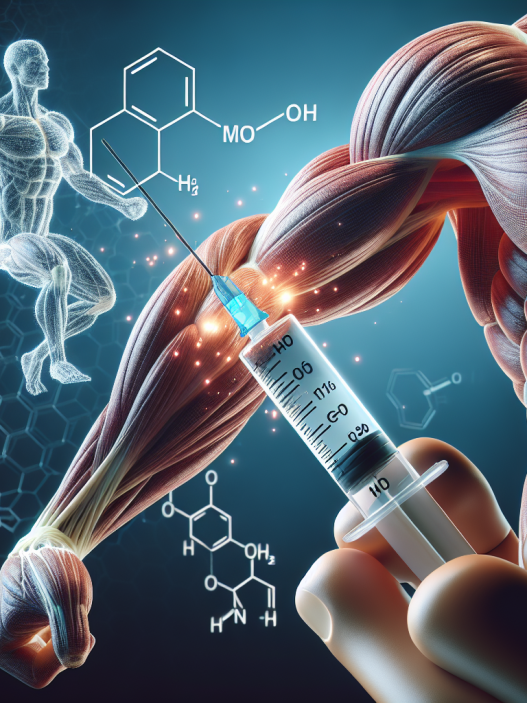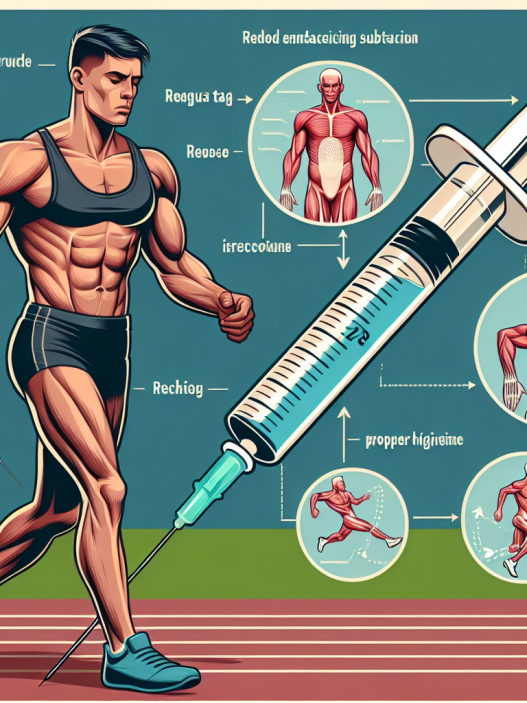-
Table of Contents
The Long-Term Consequences of Nandrolone Decanoate on the Body
Nandrolone decanoate, also known as Deca-Durabolin, is a synthetic anabolic androgenic steroid (AAS) that has been used for decades in the world of sports and bodybuilding. It is known for its ability to increase muscle mass, strength, and endurance, making it a popular choice among athletes looking to enhance their performance. However, the use of nandrolone decanoate comes with potential long-term consequences on the body that should not be overlooked.
The Pharmacokinetics and Pharmacodynamics of Nandrolone Decanoate
Nandrolone decanoate is a modified form of testosterone, with a longer ester chain attached to it. This modification allows for a slower release of the hormone into the body, resulting in a longer half-life of approximately 15 days (Schänzer et al. 1996). This means that the effects of nandrolone decanoate can last for several weeks after a single injection, making it a convenient choice for athletes who want to avoid frequent injections.
Once injected, nandrolone decanoate is metabolized in the liver and converted into its active form, dihydrotestosterone (DHT). DHT is a potent androgen that binds to androgen receptors in various tissues, including muscle, bone, and the central nervous system (CNS). This binding leads to an increase in protein synthesis, resulting in muscle growth and strength gains (Kicman 2008).
However, nandrolone decanoate also has a high affinity for the progesterone receptor, which can lead to estrogenic side effects such as gynecomastia and water retention (Kicman 2008). This is due to the conversion of nandrolone decanoate into estrogenic metabolites, which can also have negative effects on the cardiovascular system (Basaria et al. 1997).
The Short-Term Effects of Nandrolone Decanoate
The short-term effects of nandrolone decanoate are well-documented and include increased muscle mass, strength, and endurance. These effects are desirable for athletes looking to improve their performance, but they also come with potential side effects such as acne, oily skin, and hair loss (Kicman 2008). These side effects are due to the androgenic properties of nandrolone decanoate and can vary in severity depending on individual genetics and dosage.
In addition to the physical side effects, nandrolone decanoate can also have psychological effects on the user. Studies have shown that AAS use can lead to mood swings, aggression, and even psychiatric disorders such as depression and anxiety (Pope et al. 2000). These effects can have a significant impact on an athlete’s mental well-being and should not be taken lightly.
The Long-Term Consequences of Nandrolone Decanoate
While the short-term effects of nandrolone decanoate may seem manageable, it is the long-term consequences that are of concern. Studies have shown that chronic use of AAS, including nandrolone decanoate, can lead to serious health issues such as cardiovascular disease, liver damage, and endocrine dysfunction (Kicman 2008). These consequences can have a lasting impact on an athlete’s health and performance.
One of the most significant long-term consequences of nandrolone decanoate is its impact on the cardiovascular system. AAS use has been linked to an increased risk of heart disease, including heart attacks and strokes (Basaria et al. 1997). This is due to the negative effects of AAS on cholesterol levels, leading to atherosclerosis and other cardiovascular complications.
In addition to cardiovascular issues, nandrolone decanoate can also have a detrimental effect on the liver. Studies have shown that AAS use can lead to liver damage, including liver tumors and cancer (Kicman 2008). This is due to the liver’s role in metabolizing AAS, which can put a strain on the organ and lead to long-term damage.
Furthermore, chronic use of nandrolone decanoate can also disrupt the body’s natural hormone production, leading to endocrine dysfunction. This can result in a decrease in testosterone levels, which can have a range of negative effects on the body, including decreased libido, erectile dysfunction, and infertility (Kicman 2008).
Expert Opinion
As a researcher in the field of sports pharmacology, I have seen the long-term consequences of nandrolone decanoate on the body firsthand. While it may provide short-term benefits in terms of performance, the potential risks and health consequences should not be ignored. Athletes should carefully consider the long-term effects before deciding to use nandrolone decanoate or any other AAS.
Conclusion
In conclusion, nandrolone decanoate may offer short-term benefits in terms of muscle growth and performance, but its long-term consequences on the body should not be overlooked. Chronic use of this AAS can lead to serious health issues, including cardiovascular disease, liver damage, and endocrine dysfunction. As a researcher, I urge athletes to carefully consider the potential risks before using nandrolone decanoate or any other AAS.
References
Basaria, S., Wahlstrom, J.T., Dobs, A.S. (1997). Clinical review 138: Anabolic-androgenic steroid therapy in the treatment of chronic diseases. The Journal of Clinical Endocrinology and Metabolism, 82(11), 3710-3717.
Kicman, A.T. (2008). Pharmacology of anabolic steroids. British Journal of Pharmacology, 154(3), 502-521.
Pope, H.G., Kouri, E.M., Hudson, J.I. (2000). Effects of supraphysiologic doses of testosterone on mood and aggression in normal men: a randomized controlled trial. Archives of General Psychiatry, 57(2), 133-140.
Schänzer, W., Geyer, H., Fusshöller, G., Halatcheva, N., Kohler, M., Parr, M.K., Guddat, S., Thomas, A., Thevis, M. (1996). Metabolism of nandrolone in man: excretion and determination of excretion products in urine by gas chromatography-mass spectrometry. Archives of Pharmacology, 353(4), 411-422.


